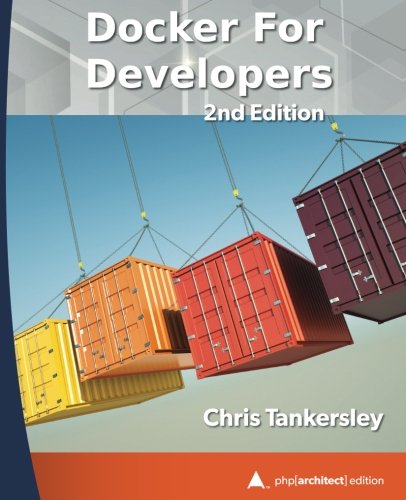; Date: Thu Oct 11 2018
Tags: Microsoft »»»» Linux »»»» Software Patents »»»» Open Source Software »»»» Open Source and Patents »»»»
As a software developer coming of age in the 1980s, Microsoft was the enemy. During the 1990s I worked for three companies that died or nearly died because Microsoft yawned and stretched its arms a little bit. Microsoft was brutal about dominating the PC market with its operating systems, and software developers chafed under their restrictions. But, something shifted, and over the last few years Microsoft got the open source religion. The various actions Microsoft has taken should make us all rethink labeling Microsoft as the enemy. Today Microsoft has pivoted its strategy around patents. Where Microsoft was formerly threatening the open source world with its patent pool, Microsoft has now joined the Open Invention Network, a multi-company patent pool that is protecting Linux.

In the past Microsoft used its patent pool to make all kinds of threats against other software companies. For example the company had contributed some work to one thread of the Unix ecosystem, and for years afterward tried to extract royalties from any company using that version of Unix. According to
Ars Technica, Microsoft earns $billions on royalties from Android device vendors over use of the exFAT file system.
In my own career - Microsoft and Sun Microsystems had a tussle over Java. Microsoft had its own Java implementation, supplying it with Windows, but the implementation was incompatible with the Java specification. It was the standard "embrace/extend/extinguish" strategy for Microsoft. Sun managed to prove in court that Microsoft had violated the Java license agreement, with a $2 billion penalty slammed on Microsoft, and a control regime placed on Microsoft for several years.
I was a member of the core Java team at Sun for that episode.
The news coverage of this announcement says Microsoft has Open Sourced its patent pool.
They did no such thing. What Microsoft did was to join a patent-sharing pool that is acting to defend Linux and some other open source projects.
The phrase "Open Source" means granting the ability to duplicate something, rebuild that thing to your desires, redistribute modified versions of that thing, and so forth. That's not what Microsoft did in opening its patent pool, no more than Tesla open sourced its patent pool when it promised to not sue other automakers for using its patents.
What Microsoft did is significant and a big step forward in reshaping Microsoft's image and helping to cement the role of open source software in the world.
As important as Microsoft's step is, we must not then mis-use a phrase like "open source patent".
Announcement:
https://azure.microsoft.com/en-us/blog/microsoft-joins-open-invention-network-to-help-protect-linux-and-open-source/
Microsoft joins Open Invention Network to help protect Linux and open source
Posted on October 10, 2018
Erich Andersen Corporate Vice President, Deputy General Counsel
I’m pleased to announce that Microsoft is joining the Open Invention Network (“OIN”), a community dedicated to protecting Linux and other open source software programs from patent risk.
We know Microsoft’s decision to join OIN may be viewed as surprising to some; it is no secret that there has been friction in the past between Microsoft and the open source community over the issue of patents. For others who have followed our evolution, we hope this announcement will be viewed as the next logical step for a company that is listening to customers and developers and is firmly committed to Linux and other open source programs.
Since its founding in 2005, OIN has been at the forefront of helping companies manage patent risks. In the years before the founding of OIN, many open source licenses explicitly covered only copyright interests and were silent about patents. OIN was designed to address this concern by creating a voluntary system of patent cross-licenses between member companies covering Linux System technologies. OIN has also been active in acquiring patents at times to help defend the community and to provide education and advice about the intersection of open source and intellectual property. Today, through the stewardship of its CEO Keith Bergelt and its Board of Directors, the organization provides a license platform for roughly 2,650 companies globally. The licensees range from individual developers and startups to some of the biggest technology companies and patent holders on the planet.
Joining OIN reflects Microsoft’s patent practice evolving in lock-step with the company’s views on Linux and open source more generally. We began this journey over two years ago through programs like Azure IP Advantage, which extended Microsoft’s indemnification pledge to open source software powering Azure services. We doubled down on this new approach when we stood with Red Hat and others to apply GPL v. 3 “cure” principles to GPL v. 2 code, and when we recently joined the LOT Network, an organization dedicated to addressing patent abuse by companies in the business of assertion.
At Microsoft, we take it as a given that developers do not want a binary choice between Windows vs. Linux, or .NET vs Java – they want cloud platforms to support all technologies. They want to deploy technologies at the edge – on any device - that meet customer needs. We also learned that collaborative development through the open source process can accelerate innovation. Following over a decade of work to make the company more open (did you know we open sourced parts of
ASP.NET back in 2008?), Microsoft has become one of the largest contributors to open source in the world. Our employees contribute to over 2000 projects, we provide first-class support for all major Linux distributions on Azure, and we have open sourced major projects such as .NET Core, TypeScript, VS Code and Powershell.
Now, as we join OIN, we believe Microsoft will be able to do more than ever to help protect Linux and other important open source workloads from patent assertions. We bring a valuable and deep portfolio of over 60,000 issued patents to OIN. We also hope that our decision to join will attract many other companies to OIN, making the license network even stronger for the benefit of the open source community.
We look forward to making our contributions to OIN and its members, and to working with the community to help open source developers and users protect the Linux ecosystem and encourage innovation with open source software.











